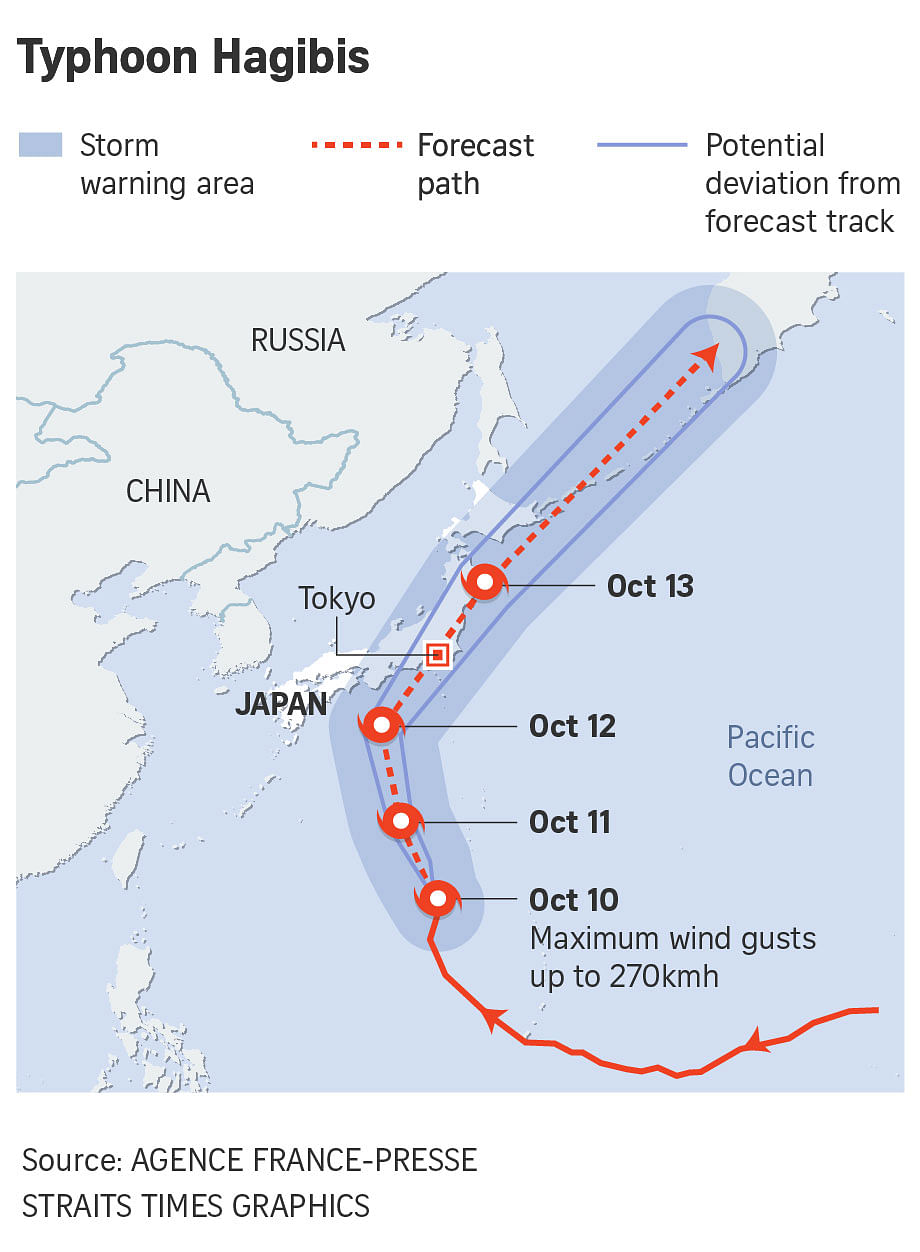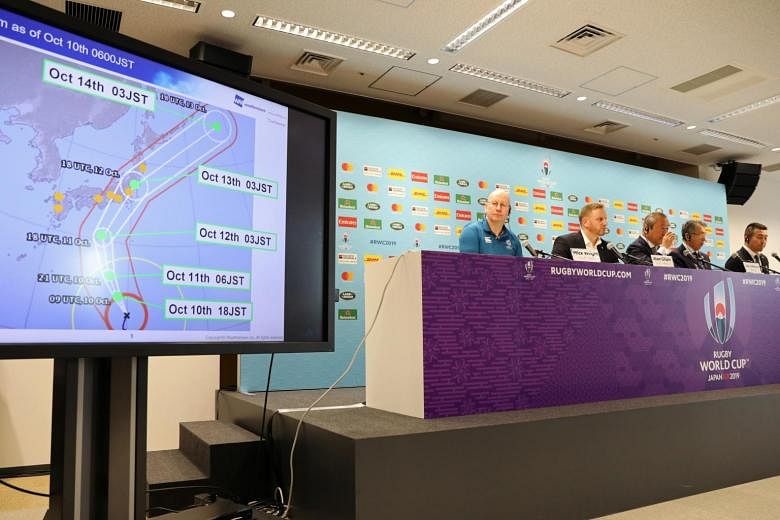TOKYO (NYTIMES, BLOOMBERG) - A super typhoon in the Pacific Ocean that could cause grave damage in Tokyo is expected to hit Japan on Saturday (Oct 12). Already, it has forced the cancellation of two Rugby World Cup games.
The centre of Super Typhoon Hagibis was roughly 1,529km south of Tokyo as of Thursday morning local time, according to Mr Brandon Bukunt, a meteorologist with the National Weather Service in Tiyan, Guam.
The storm was moving about 14.5kmh to the north and is expected to pass along the east coast of Japan on Saturday evening, he said. Wind speeds, as estimated by satellites, reached 257kmh, equivalent to a Category 5 hurricane; a storm more than 240kmh is classified as a super typhoon. The Japan Meteorological Agency forecasts its maximum wind gust speed at 270kmh.
The storm is expected to weaken, with winds at about 145kmh, as it approaches Japan. Mr Bukunt predicted heavy rain there starting late on Friday or early on Saturday. The storm, he said, is expected to undergo "an extra-tropical transition" in the following days and become a large storm in the Bering Sea.
"It will impact the West Coast of even the US with large surf, and Hawaii as well," he said.
NHK, Japan's public broadcaster, reported that officials are urging residents to prepare for potentially severe weather, including dangerous storm surges.
The typhoon caused the cancellation of Rugby World Cup games in Japan between England and France, and Italy and New Zealand, the first time games have been cancelled at the tournament. The cancelled games will be counted as scoreless draws, with each team earning two points in pool standings.
A final decision on Sunday's games in Yokohoma, including a crucial match between hosts Japan and Scotland, will be made that morning after a thorough assessment, organisers said.
Mr Jeff Masters, a meteorologist with the magazine Scientific American, said that if Hagibis proceeds as predicted, it could become one of the most damaging typhoons in Japanese history.

"If it hits Tokyo Bay like some of the current forecasts are saying, then it's going to be a multi-billion-dollar disaster," Mr Masters said.
Japan Rail announced that it would likely suspend services on multiple lines in advance of the typhoon hitting Japan. Both Japan Airlines and All Nippon Airways have said they will suspend flights from Friday to Sunday.
It has been a month since Typhoon Faxai hit Japan, and some homes in Chiba prefecture outside Tokyo are still without power. Many homes damaged during that storm are still under blue tarps.
Last year, Jebi, the worst typhoon in 25 years, killed 11 people, injured hundreds and caused an estimated US$12.6 billion (S$17.4 billion) in damage. It prompted government evacuation orders for about 49,000 people, with many more advised to flee.
An increasing number of strong storms and greater rainfall are generally linked to global warming.
Mr Masters said that scientists have found that typhoons in the north-west Pacific are reaching their maximum intensities farther north than they used to, increasing the risk to Japan. In a recent review paper by 11 hurricane scientists, nine of them concluded that the evidence suggests that human-caused climate change contributed to the migration, he noted.
The term typhoon is used for storms that develop in the north-western Pacific and usually threaten Asia. Hurricanes, typhoons and cyclones are actually all the same thing - low-pressure circular storm systems with winds of more than 120kmh that form over warm water - but different terms are used around the world.

